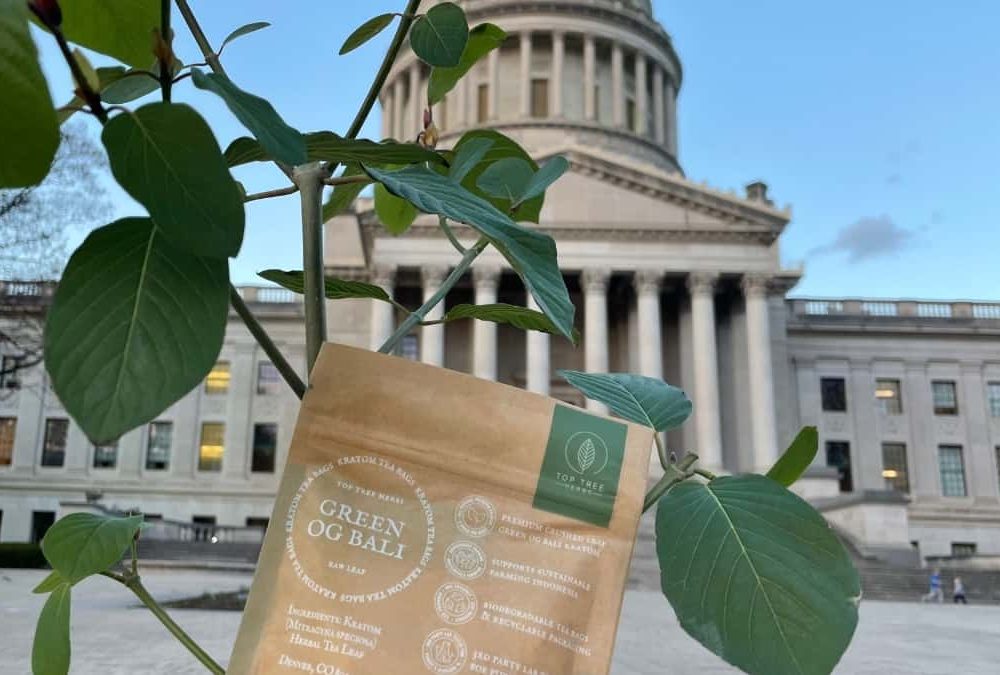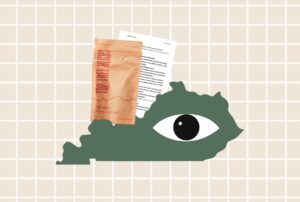More than many other types of buyers, kratom consumers tend to make an effort to stay up-to-date on the topic of kratom legality. Across the US, thousands of kratom advocates regularly monitor the news for changes to kratom’s legal status. One of the kratom bills appearing in more and more states across the country is the Kratom Consumer Protection Act (KCPA).
The prevalence of the KCPA wouldn’t be possible without the dedicated efforts of the kratom community. Whether it’s finding ways to fight new regional and state kratom bans, joining efforts to legalize kratom in states where kratom is scheduled, or sharing informational articles online, one thing’s for certain—the community has a powerful impact.
After all, if it weren’t for the kratom community voicing their opinions against a pending federal ban back in 2016, kratom would’ve been made illegal across the entire country. Yet, faced with thousands of complaints and stories from kratom supporters, the Drug Enforcement Administration (DEA) decided to reverse its decision to ban kratom, making it the first time the DEA had ever changed its mind about scheduling.
While rousing kratom consumers to fight kratom bans is important, in recent years, it has also become vital that we support pro-kratom laws. More specifically, we need to promote and defend the legal efforts to regulate kratom. That’s where the KCPA comes into play.
So, what is the KCPA? Why is it important to regulate kratom? Why do we support it, and what can you do to help? Let’s get into everything you should know about the Kratom Consumer Protection Act and the push to regulate kratom.
Is Kratom Regulated? What Does Kratom’s Regulation Status Mean for Consumers?
As you know, many of the products you buy have federal regulations. There are certain legal standards that must be met for foods, beverages, medicine, and even dietary supplements. But if you’re wondering, is kratom regulated? The answer at the federal level is no. Currently, kratom is not regulated by the Food and Drug Administration (FDA), nor has kratom ever been federally regulated in the US.
Now, that might sound problematic to you, and it is. It’s the lack of nationwide regulations that has prompted so many kratom activists to make changes. Without regulatory requirements, consumers have to be conscious of where they buy kratom. Similar to the hemp and CBD industry, not all kratom products for sale meet the same standards for quality, safety, manufacturing, and processing. Since kratom is not regulated federally, not all kratom products have labels displaying their nutrition facts or list of ingredients.
Kratom Vendors’ Self-Imposed Quality Standards
Now, many vendors take it upon themselves to follow regulation standards even though they’re not required to in every state. For example, good kratom vendors lab-test their kratom, label their products adequately, and follow Good Manufacturing Practice (GMP) standards. Some vendors, like us here at Top Tree Herbs, go beyond GMP guidelines to offer premium kratom responsibly and with total consumer transparency.
However, it’s not mandated that vendors do this. Vendors who don’t follow these guidelines can still sell their products on the market.
Why Isn’t Kratom Regulated? What Can Be Done?
The reason why kratom isn’t regulated has to do with its lack of categorization by the FDA. Currently, kratom falls into a regulatory grey area. Just as the FDA has yet to categorize CBD, the FDA has not chosen to regard kratom products as dietary supplements or food additives. While the FDA has said they plan on working with Congress to devise a strategy for regulating CBD, they haven’t said anything about creating a strategy for regulating kratom.
NDI Applications for Kratom
Technically, the FDA says kratom is a New Dietary Ingredient (NDI) for which no NDI application has been approved. Since the process of applying to have an ingredient approved as an NDI is very complicated, lengthy, and expensive (it can cost hundreds of thousands, if not millions, of dollars to submit an NDI for approval)—only a small number of vendors have even been able to apply. Once the forms are submitted, all it takes is a couple of mistakes in the paperwork, some problems with citations, or a lack of evidence for the FDA to reject an NDI application and send the applicant back to square one.
Since we currently can’t rely on the FDA to regulate kratom any time soon, let alone approve it as a New Dietary Ingredient, kratom consumers and proponents have come up with different means of mandating that kratom products meet certain standards.
That’s where the Kratom Consumer Protection Act comes into play.
What Is the Kratom Consumer Protection Act?
In response to the lack of kratom regulation on the federal government level, the American Kratom Association (AKA) put together a series of guidelines to regulate kratom on the state level. This set of guidelines is known as the Kratom Consumer Protection Act (KCPA).
According to the American Kratom Association (AKA), the Kratom Consumer Protection Act is, “A bill to regulate the preparation, distribution, and sale of kratom products; to prohibit the preparation, distribution, and sale of adulterated or contaminated kratom products; to prescribe fines and penalties and allow remedies; and to provide for the powers and duties of certain state government officers and entities.”
So, what does the Kratom Consumer Protection Act do? Though you can read through it on the AKA’s website or look directly at individual bills in states that passed the KCPA, here’s the gist of what the regulatory framework entails:
- Requires kratom product packaging to include a label disclosing the ingredients
- Forbids the sale of contaminated or adulterated kratom products
- Restricts kratom sales to minors; must be at least 18 or 21 years of age to buy kratom
- Limits the amount of the alkaloid 7-hydroxymitragynine to no greater than 2% of the product’s total alkaloid composition
- Calls for adherence to Good Manufacturing Practices and third-party lab testing
- Often requires kratom vendors to register their business as a food establishment with a particular state department or other state body
States can introduce a bill to regulate kratom that is based on the guidelines of the KCPA. However, the exact violation charges, fees, and other specifications can vary between states. The first state to pass the Kratom Consumer Protection Act was Utah. The Utah legislature voted Senate Bill 58 into law on May 14, 2019.
Which States Have Passed the Kratom Consumer Protection Act?
So far, 12 states have passed legislation regulating kratom. As of 2024, the states that have passed the Kratom Consumer Protection Act (or a similar regulatory bill) are:
Some states have not passed the KCPA as it was written by the AKA. Instead, they have passed unique bills written by legislative council within the state government.
For instance, the bill that regulates kratom in West Virginia is the “Selected Plant-Based Product Regulation Act: Kratom,” not the Kratom Consumer Protection Act. It provides similar standards for consumer safety as the KCPA, but has added stipulations for vendor registration, taxation, and enforcement.
The number of states that have passed the KCPA or a similar alternative has gone up recently. However, the bills often differ significantly between states. West Virginia and Virginia’s kratom regulation bills, which were both passed this spring, are prime examples of this. The difference in requirements for packaging, registration, taxation, and the like can lead to confusion for both businesses and consumers.
Nevertheless, even an imperfect set of state regulatory guidelines for the kratom market is often better than nothing. Passing kratom regulation laws doesn’t guarantee that a state will be protected from legislators introducing a future bill to schedule kratom.
Yet, it does generally work in favor of protecting not only kratom’s legal status but also the thousands of Americans who buy kratom. In some states, like West Virginia, a kratom regulation bill has replaced a pending kratom ban. The AKA usually lobbies to get states that have an active or pending kratom ban to replace the legislation with a bill regulating (and legalizing) kratom.
Why is the KCPA Important?
- The KCPA requires vendors to provide consumers with as much information as possible about the their kratom products, from the concentration of kratom alkaloids to the added ingredients like flavors and sweeteners.
- Lack of regulation means that profit-motivated vendors can cut corners – they may skip lab testing for contaminants or fail to meet health & safety standards when packaging their products.
- Kratom regulations can prevent the need for bans, and thus allow for the continuation of research into kratom. Research is essential for determining how kratom alkaloids and combinations of kratom with other foods or drugs may benefit or negatively impact individuals, which will in turn enhance consumer safety.
As previously mentioned, when states pass legislation regulating kratom, it can help usurp a pending kratom ban or even replace an active kratom ban. Furthermore, because the FDA has not yet set nationwide guidelines for quality control measures, purity, or labeling for kratom products, the KCPA guidelines work to add some protections favoring consumer safety.
Under the KCPA, vendors who sell contaminated kratom, fail to list all ingredients, or sell to minors can be penalized and removed from the market. Without any kratom regulation laws, it can be difficult to stop these vendors. This can be harmful for consumers and create misunderstandings about kratom as a whole.
For example, say there’s an ingredient in a bag of kratom that doesn’t disclose the ingredient on the label. Even something as common as caffeine can be a harmful additive for certain individuals with underlying health conditions. If someone unknowingly consumes this ingredient and has adverse health effects, health professionals and media outlets could assume kratom was entirely responsible, unaware that the problem was caused by an adulterant.
What Should I Do if Kratom Is Not Regulated in My State?
If you do not live in one of the states that has passed the Kratom Consumer Protection Act and has left kratom unregulated, don’t fret. You can still find kratom vendors who lab-test their products, label them properly, and opt to follow the KCPA’s guidelines even if not required in your state. The “best kratom vendors” out there are not those who offer the best price or the coolest websites—they’re the ones who take the matter of kratom legislation seriously and will do what they can to back regulation efforts one way or another.
To find a kratom vendor that follows regulatory standards, check for the following:
- Up-to-date third-party certificates of analysis – the documents that provide results from lab tests – for every product with lot numbers or batch numbers (if you can’t find them on the website, contact the vendor to ask for the latest lab tests)
- Product labeling with a complete list of ingredients
- Contact information and address for the business on the website and the product packaging
Besides making sure that you do a little bit of research before you buy kratom tea or capsules conscientiously, you can also spread the word to other kratom fans you know about the regulatory situation. You can inform them about what they should look for in a vendor when they buy kratom in a state where it’s not regulated. Doing all this can give you and them some peace of mind—not only so that you know exactly what you’re buying but also so that you can feel good about supporting a business that’s doing its part to help the cause.
How to Support Kratom Regulation to Protect Kratom Consumers
Now that you know the whole shebang on kratom regulation, you might be wondering, “What can I do to help out?” Well, for one, you can keep up with the news. Simply type “kratom regulation” into your search bar, find “tools” in the Google browser, and filter the date to the last few months or so. You can also subscribe to the American Kratom Association’s newsletter to find out about the latest news updates and actions to take.
Lastly, pay attention to the legal developments in your state. Google “kratom + [your state]” and go to the “News” section. If you do this once a week or even once a month, you can stay on top of the legal changes heading your way. You can also write to your state’s legislators and urge them to regulate kratom. Feel free to explain why kratom quality should matter to them. More often than not, the legislators in charge of kratom-related legal decisions haven’t even heard of kratom.

Top Tree Herbs’ Support of the Kratom Consumer Protection Act
We support the KCPA and follow regulatory standards because we are kratom consumers, too. We would never sell a product that we wouldn’t be comfortable consuming ourselves. By lab testing for contaminants and following Good Manufacturing Practices, we create kratom tea that can support people’s wellbeing and happiness in the long term, not just in the short term.
Regulation is important to anyone and everyone who likes kratom. Consumers, vendors, buyers, friends of kratom consumers, scientists, lawmakers looking to do the right thing—all of us need to stick together and do what we can.
Our team is adamant about following kratom news and research, writing to our legislators, and attending any state kratom meetings that we can. We’re always available to answer any questions you may have, so ask away, spread the word, and enjoy your kratom tea brew!





